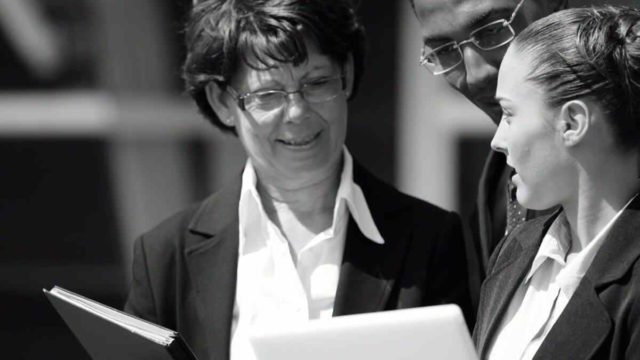
APEL.Q Definition
[APEL.Q] Accreditation of Prior Experiential Learning (APEL) for Award of Academic Qualifications (Q) is the awarding of academic qualifications to individual learners based on the evaluation and assessment of prior experiential learning toward fully recognized programmes given by higher education providers (HEPs) partner of the London Academy Sciences (LAS UK).
APEL.Q provides the mechanism for recognizing an individual’s prior experiential learning that is relevant and specific to a course of study. The awarding of academic credentials [APEL.Q] is based on the knowledge, skills, and competences obtained through formal, informal, and non-formal learning. APEL.Q that leads to the conferral of academic qualifications that emphasizes experiential learning must be formally reviewed and assessed in order to protect the integrity and authenticity of the academic credentials awarded.
The process will establish if learning has occurred in accordance with the programme learning outcomes (PLOs), the accompanying five clusters of learning outcomes as specified in the European Qualifications Framework (EQF), and the body of knowledge of the concerned course(s).
The London Academy of Sciences’ APEL.Q
London Academy of Sciences is the first independent APEL.Q provider in the world to recognize the worth of prior learning acquired through formal, non-formal, or informal sources, as well as vast relevant work experience, in order to receive a relevant degree, using a method that evaluates validity and fairness. The LAS’ Partner universities certify & recognized every assessment procedure.
Students can earn a degree with full accreditation in less than six months and save more than 95% on tuition fees compared to full-time university education.
The fundamental principles of APEL.Q
The purpose of the basic principles is to ensure an efficient, transparent, and quality-assured practice that will inspire confidence in the outputs of the APEL.Q process among all stakeholders. This is also to protect the legitimacy and integrity of the APEL.Q evaluation mechanisms and tools. The following are the guiding concepts for APEL.Q:
Candidate voluntary
APEL.Q supports continual learning and the positive qualities of an individual’s learning experience. APEL.Q is centered on the procedure by which a learner launches an application for an academic qualification through the evaluation of his or her prior experience learning. It is the learner’s obligation and responsibility to submit the relevant documentation and proof for the assessment process and to express his or her willingness to follow the entire APEL.Q assessment process chain. Although the procedure is voluntarily undertaken by the student with the support of the London Academy of Sciences – APEL.Q Centers.
Accessibility
LAS Accessible and inclusive, APEL.Q is available to registered students enrolled in fully accredited programs at all EQF levels. LAS is tasked with developing and implementing clear and exhaustive guidelines for the APEL.Q procedure. LAS has available the necessary mechanisms and resources (human, infrastructure, and infostructure resources) to manage and support learners throughout the entire process. Information on APEL.Q is readily accessible and communicated to all parties involved in APEL.Q processes.
Flexibility
A variety of approaches were adopted by LAS for the implementation of APEL.Q in terms of supporting services and the stringent assessment procedure. This is to accommodate the diverse needs, goals, and experiences of students across all academic disciplines.
Consistency, reliability, validity, and transparency
To protect the credibility and integrity of the overall assessment system, APEL.Q’s methods, procedures, practices, and decisions must be dependable, legitimate, transparent, and consistent. This is vital to ensure that all stakeholders have faith in the APEL.Q processes’ decisions and outcomes.
Quality
All APEL.Q processes conform to the same stringent quality assurance and monitoring procedures as any other formal learning assessment. This quality assurance method must always be accessible to relevant external quality assurance organizations or agencies.
Application requirements for APEL.Q
To be eligible for APEL.Q, candidates must have the requisite years of experience in the relevant field at the appropriate level, as shown:
- Bachelor’s Degree (Level 6 EQF): 10 Years
- Master’s Degree (Level 7 EQF): 15 Years
- Doctoral Degree (Level 8 EQF): 20 Years
The LAS assessment board will consider on case-by-case basis candidates who do not fulfill the mentioned minimum years of work experience but who have extraordinary prior experienced learning.
Award of Academic Qualifications
APEL.Q can only be used to programs that have received full accreditation from the university partners of the London Academy of Sciences. APEL.Q is assessed independently for each programme, as each application is specific to the award of a single academic qualification.
The evaluation will consist of the subsequent:
- Submit your portfolios
- LAS evaluation of your portfolios
- Receive qualification of LAS
- Transfer APEL.Q result to the university
- Complete the capstone course(s)
- Graduate & get the degree of a university
University accepts the LAS APEL.Q and issues the degree
The Swiss Institute of Management and Innovation (SIMI Swiss) recognized the entire LAS evaluation procedure through a rigorous process of due diligence conducted by its academic panel. The entire LAS APEL.Q process is audited by SIMI Swiss to ensure transparency, honesty, and fairness.
SIMI Swiss is the first accredited institute of higher education in Zug Switzerland
Programs could be applied for APEL.Q pathway:
- Bachelor of Business Administration (Hons) with 18 majors
- Master of Business Administration with 18 majors
- Master of Arts in Education Management & Innovation Pedagogy
- Master of Arts in Hospitality And Tourism Management
- Master of Sciences in Logistics And Supply Chain Management
- Master of Arts in Luxury Management & Marketing
- Master of Arts in Talent Development And HR Management
- Master of Sciences in Accounting And Financial Management
- Master of Sciences in Risk Management
- Master of Arts in TESOL
- Doctor of Business Administration with 18 majors.









